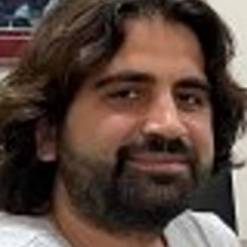
Turker Tuncer
Work place: Digital Forensics Engineering, Firat University, Elazig, 23200, Turkiye
E-mail: turkertuncer@firat.edu.tr
Website:
Research Interests:
Biography
Turker Tuncer received the master’s degree in electronics and computer sciences and the Ph.D. degree in software engineering from Firat University, Elazig, Turkey, in 2011 and 2016, respectively. He is currently an Associate Professor with the Digital Forensics Engineering, Technology Faculty, Firat University. His main research interests include feature engineering, image processing, signal processing, information security, and pattern recognition. He has been working actively on developing algorithms in machine learning applied to visual surveillance and biomedical data.
Author Articles
Spectrogram-based Deep Learning Approach for Anomaly Detection from Cough Sounds
By Tugce Keles Sengul Dogan Abdul-Hafeez Baig Turker Tuncer
DOI: https://doi.org/10.5815/ijitcs.2025.03.01, Pub. Date: 8 Jun. 2025
Artificial intelligence is now applied in many fields beyond computer science. In healthcare, it enables early disease detection and improves patient outcomes. This study develops a model that uses AI to find abnormal patterns in cough sounds. A cough is a key symptom of asthma and other respiratory diseases. Previous research has focused on raw audio signals of coughs. In contrast, we analyze spectrogram images derived from these sounds to improve accuracy. We designed a new convolutional neural network (CNN) for this purpose and the recommended CNN is termed as TwoConvNeXt. To showcase the classification performance of the recommended TwoConvNeXt model, a cough sound dataset has been utilized and the recommended TwoConvNeXt achieved 99.66% classification test accuracy.
These results illustrate that the presented TwoConvNeXt CNN architecture can be useful in both research and clinical settings. This CNN model can be utilized for other image classification problems. It may aid in the early diagnosis of respiratory conditions. Future work will expand the dataset and test the model on larger, more diverse samples.
Other Articles
Subscribe to receive issue release notifications and newsletters from MECS Press journals